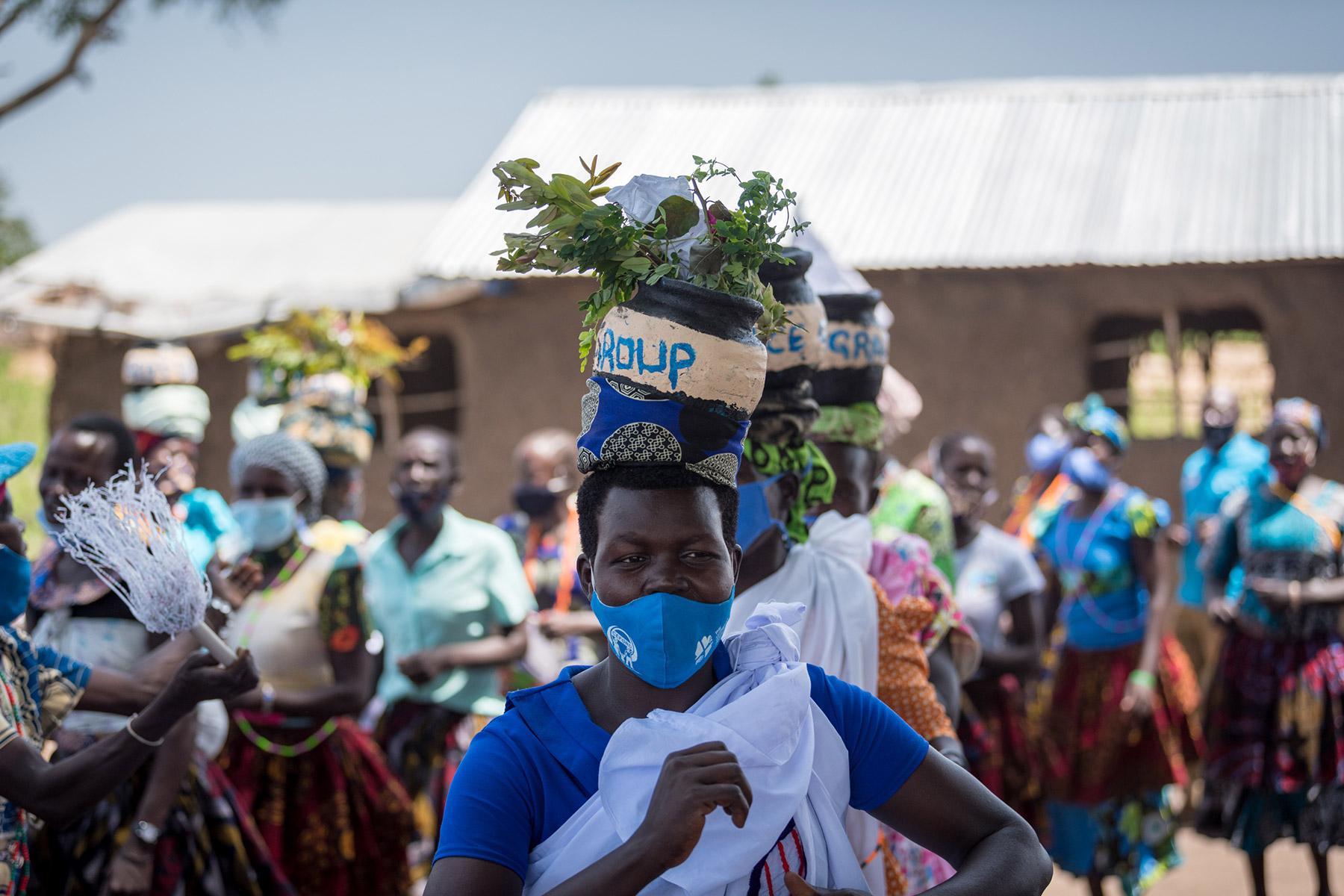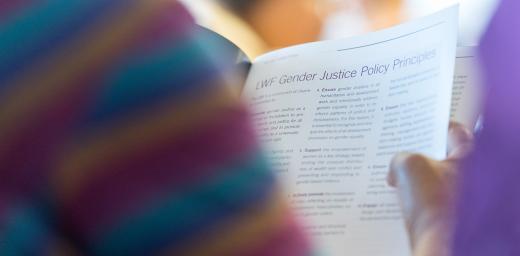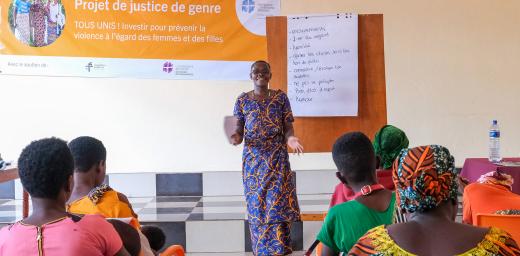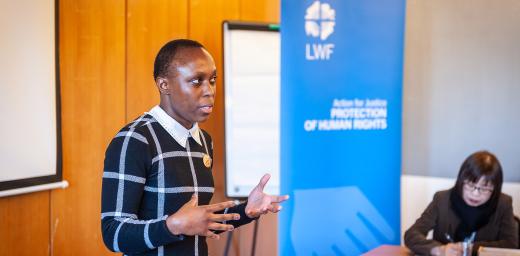Consortium of faith-based organizations highlights vital role of survivors and communities in tackling gender violence
(LWI) - The work of the Lutheran World Federation (LWF) in Uganda to prevent and respond to sexual and gender-based violence was showcased at a webinar on 5 December marking the 16 Days campaign to end violence against women and girls.
The event was organized by a consortium of faith-based organizations that includes the LWF, alongside World Vision, Tearfund, Episcopal Relief and Development, ALARM and International Justice Mission. The new network was established earlier this year with a memorandum of understanding aimed at sharing resources and promising practices in combating sexual and gender-based violence.
Winnie Ondoa Abio, Protection Coordinator for LWF Uganda, spoke of the way she and her colleagues work to support survivors, as well as focusing on prevention and “building communities of resilience” by challenging cultural practices such as forced marriages for young girls. “Gender-based violence is not just an individual violation,” she said, “but it is a collective challenge requiring a concerted community response.”
Religious and community leaders can be the gatekeepers, so it is vital to cooperate with them.
– Winnie Ondoa Abio, Protection Coordinator for LWF Uganda
Highlighting the need to include men and boys in that response, she noted that LWF has been working closely with religious leaders at local and national level, encouraging them to include awareness raising about gender-based violence in their regular church activities. “Religious and community leaders can be the gatekeepers, so it is vital to cooperate with them, as well as with government officials for the sustainability of our programs," she said.
She also spoke of the progress that has been made in training health workers to deal sensitively with rape cases by providing both counselling and medical support for survivors. Other important initiatives include the translation of materials into local languages, facilitation of community discussions through music and drama and the provision of female-friendly spaces in the refugee camps where LWF is present.
Speaking as a survivor herself, Jacqueline Ogega, senior director of World Vision’s Gender Equality and Social Inclusion (GESI) approach, spoke of the consortium’s asset mapping initiative which documents where and how faith actors are working alongside secular partners to make a difference in prevention, protection and response to gender-based violence. She said it is “a persistent challenge to keep the voice and agency of survivors” at the center of this work and to push for accountability of perpetrators.
Objectives of the faith actors’ consortium
Sabine Nkusi, Tearfund’s Gender and Protection Unit Lead highlighted the objectives of the faith actors’ consortium. These include co-convening activities for the purpose of shared learning, documenting and disseminating promising practices, and reaffirming the commitment to speak out against sexual and gender-based violence. She pointed to a growing awareness within the secular world of the impact that faith leaders can have in changing attitudes and challenging negative norms and practices.
Sharing an example of the influence of faith leaders in this work, Ernest Cajuste, senior program officer for trauma and resilience with Episcopal Relief and Development, cited a program that his organization has been implementing in Liberia where “over 90 percent of the population belong to either the Christian or Muslim faith.” Religious leaders receive in-depth training, “from self-reflection to deconstruction of power structures within the community,” enabling them to “stand on the side of survivors and their families.”
Jocelyn Penner Hall, principal advisor on violence against women and children for International Justice Mission, shared details of a “new and promising tool” that her organization has been developing to assess survivor outcomes. Noting how hard it is for women and girls living in poverty “to overcome power dynamics and get a response from legal systems,” she explained how the tool can effectively measure survivors’ needs, as well as their progress towards restoration and full legal protection.
The faith actors’ consortium will convene its next event at the upcoming United Nations Commission on the Status of Women in New York in March 2024.






